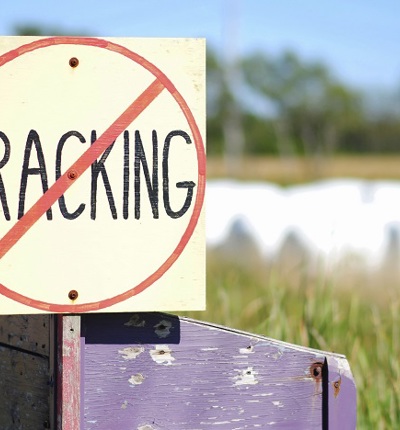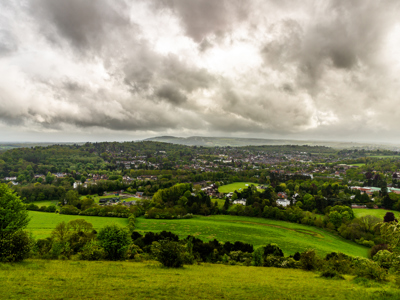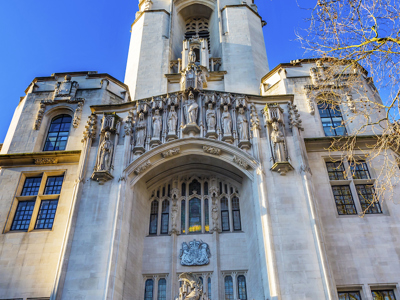
Fracking and fossil fuel extraction claims
Fracking – or hydraulic fracturing – is a controversial method of extracting fossil fuels from the ground. It can be harmful to the environment and affect the lives of people near the extraction site. Find out about the current laws on fracking for fossil fuels and your legal rights.
Leigh Day is widely regarded as one of the leading law firms specialising in claimant environmental work.
Our specialist team acts for people and groups impacted by fossil fuel fracking, including but not limited to:
- Individuals
- Concerned local groups
- Charities
- Environmental NGOs.
Our cases are at the forefront of the environmental movement, and push the law in radical and ambitious directions, most notably within the context of climate change and wildlife protection.
Whether you’ve been impacted by living close to a fracking site, or faced legal action from protesting against fracking, Leigh Day can help.
Fossil fuels facts
Fossil fuels are non-renewable energy sources formed from the remains of living organisms millions of years ago. Fossil fuels include:
- Coal – fossilised plant matter
- Oil – fossilised marine organisms
- Gas – a product of decomposed microorganisms.
Fossil fuels are made up of hydrocarbons. When burned they release heat energy, carbon dioxide and small amounts of other gases. The heat energy is used to produce electricity, run cars and heat our homes.
However, carbon dioxide is a greenhouse gas, acting as a barrier that prevents the sun’s warmth from escaping the earth – like the glass panes in a greenhouse. The more carbon dioxide released into the atmosphere, the bigger the impact on the earth’s climate.
Burning fossil fuels also releases airborne toxins and pollutants like mercury, lead, sulphur dioxide and ozone. These pollutants get into our air and waterways, impacting people and nature.
Despite efforts to move towards renewable energy sources like solar, wind and water, fossil fuels accounted for 84% of global energy consumption in 2019. Burning fossil fuels is the primary cause of climate change.
What is fracking?
Hydraulic fracturing, commonly known as fracking, is a procedure to extract fossil fuels from rock. It involves drilling deep underground and pumping a high-pressure mixture of water, sand and chemicals to release gas and oil from shale rock.
Fracking is a controversial method of extracting fossil fuels for several reasons:
- Fracking risks releasing oil, gas (particularly methane) and chemicals into the air and water table.
- Fracking sites in the UK have been linked to an increase in earth tremors.
- It’s an energy- and water-intensive method for extracting fossil fuels.
- Campaigners argue that fracking encourages continued dependence on fossil fuels and undermines efforts to move towards renewable energy.
Fracking in the UK has faced protests, negative publicity and legal challenges. The controversy resulted in the government imposing an indefinite moratorium on fracking in November 2019.
What are the current laws on fracking for fossil fuels?
Despite the government’s commitment to the Glasgow Climate Pact at COP26 and its Net Zero Strategy published in 2021 (which we challenged in the Courts on behalf of campaigners), the UK has at least 40 fossil fuel extraction projects on track for approval by 2025.
Petroleum Act 1998
This law sets out rules for licenses to search for and extract shale gas and other fossil fuels. An updated Section 4A - added following section 50 of the Infrastructure Act 2015 - sets out rules and safeguards for ‘hydraulic fracking consents’ and ‘well consents’. These apply in England and Wales but not in Scotland.
How Leigh Day has helped with fossil fuel extraction claims
We specialise in legal cases concerning fracking. Here are some of the ways we offer legal services relating to fracking and fossil fuels.
We have represented anti-fracking campaigning groups in judicial reviews against planning permissions for fracking for fossil fuels at:
- Preston New Road (Lancashire)
- Ryedale (Yorkshire)
- Balcombe (West Sussex)
- Harthill (Rotherham)
- Surrey Hills (Surrey)
Our strategic legal work includes encouraging public bodies to divest from funding fossil fuel extraction projects, including through their pension arrangements.
Linked to our climate change work, we are teaming up with environmental campaigners. We will work together to resist moves for greater fossil fuel extraction both onshore and offshore and encourage public bodies to divest from funding such projects.
We act for campaigners challenging the UK’s emissions trading scheme for excluding municipal waste incineration.
We respond to government policies that restrict renewable energy and promote shale gas as a positive contribution to a low-carbon economy. Our team is fully committed to progressing the law in this field, and we very much look forward to continuing to work with environmental NGOs and activists to achieve that goal.
Start a claim against fossil fuel extraction with Leigh Day
There are a range of reasons you might want to bring a claim against fossil fuels, such as:
- Damaging impact on the climate
- Destruction of local habitat
- Pollution concerns
- Planning regulations
- Disturbing local residents.
Claims are commonly put forward by individuals, community groups, campaign groups, businesses and NGOs.
To start a claim against fossil fuels today, speak to one of our lawyers about your case. They can advise on whether you have grounds for a legal case and the best next steps to take.
Meet our fossil fuel specialists
Our team of lawyers specialise in all kinds of environmental matters, including climate change, air pollution and fossil fuels. They have worked cases against extending Heathrow Airport, granting planning permission for fracking, and investment in road infrastructure expansion.
Why choose Leigh Day?
We’re experienced in environmental claims
Our depth and breadth of experience in the field of fossil fuel claims enables us to provide detailed and strategic litigation advice. In addition to our work at the cutting edge of litigation, we work with environmental NGOs and others to effect strategic improvements to the environment and environmental justice.
We are members of representative bodies
We sit on numerous representative bodies including the recently established Law Society grouping on climate change. Leigh Day regularly responds to government consultations and reviews, including the IRAL Panel on the effectiveness of Judicial Review. We are also a co-Communicant in an ongoing Communication to the Aarhus Convention Compliance Committee on the intensity of review available in UK judicial review. We’re working alongside Friends of the Earth, Friends of the Earth Scotland and the RSPB on this case.
We believe everyone deserves access to legal advice
We understand the cost implications of taking legal challenges can be a major concern for individuals, community groups and NGOs. We provide expert advice on the bespoke Aarhus costs regime for environmental cases. We can support clients through the process of fund-raising through crowdfunding platforms and we endeavour to ensure that no client is denied access to legal advice through lack of means. Contact our legal team today to find out if Leigh Day could represent you.
Our fracking challenges

Major legal challenge to decision to allow exploratory oil and gas well in Surrey
Campaigners have issued a major legal challenge to a government decision to allow an exploratory oil and gas well to be dug in Dunsfold in the vicinity of the Surrey Hills Area of Outstanding Natural Beauty (AONB).

Surrey campaigner applies for permission to appeal to Supreme Court over go-ahead for oil wells
Surrey campaigner Sarah Finch has applied for permission to appeal to the Supreme Court over the lawfulness of the decision to allow oil wells to be drilled at Horse Hill, north east of Gatwick Airport.


